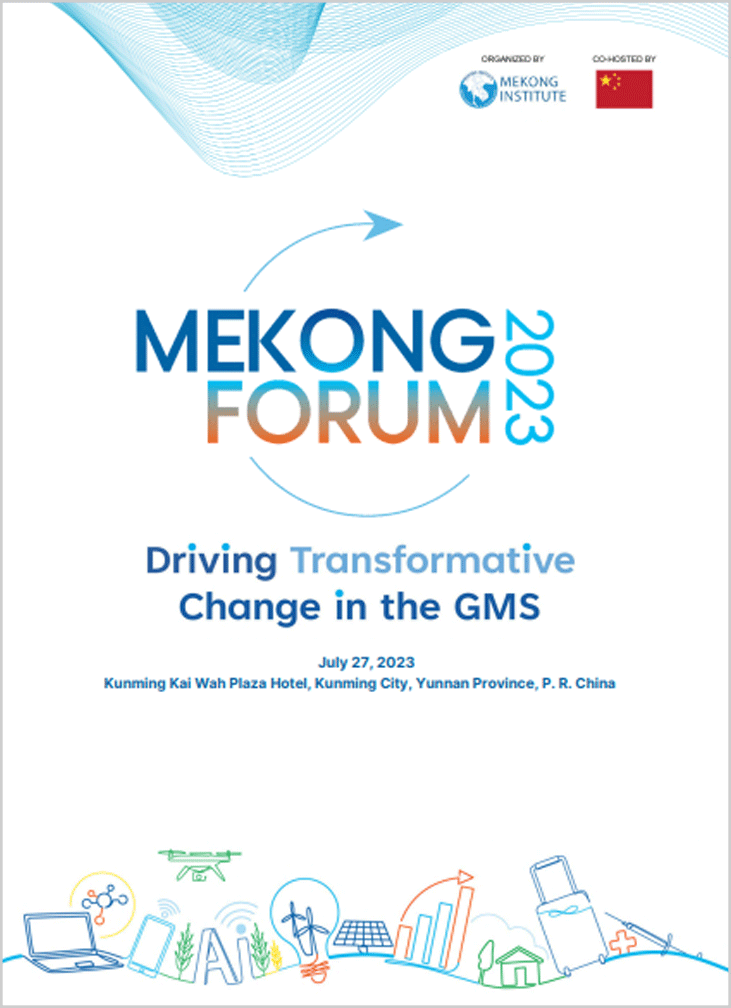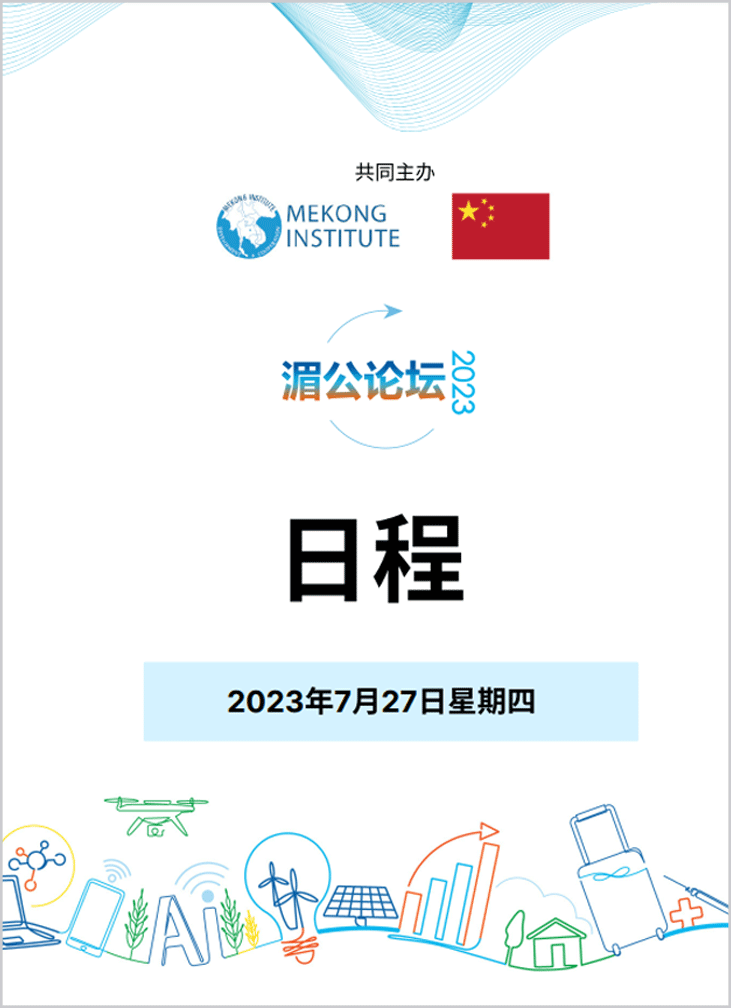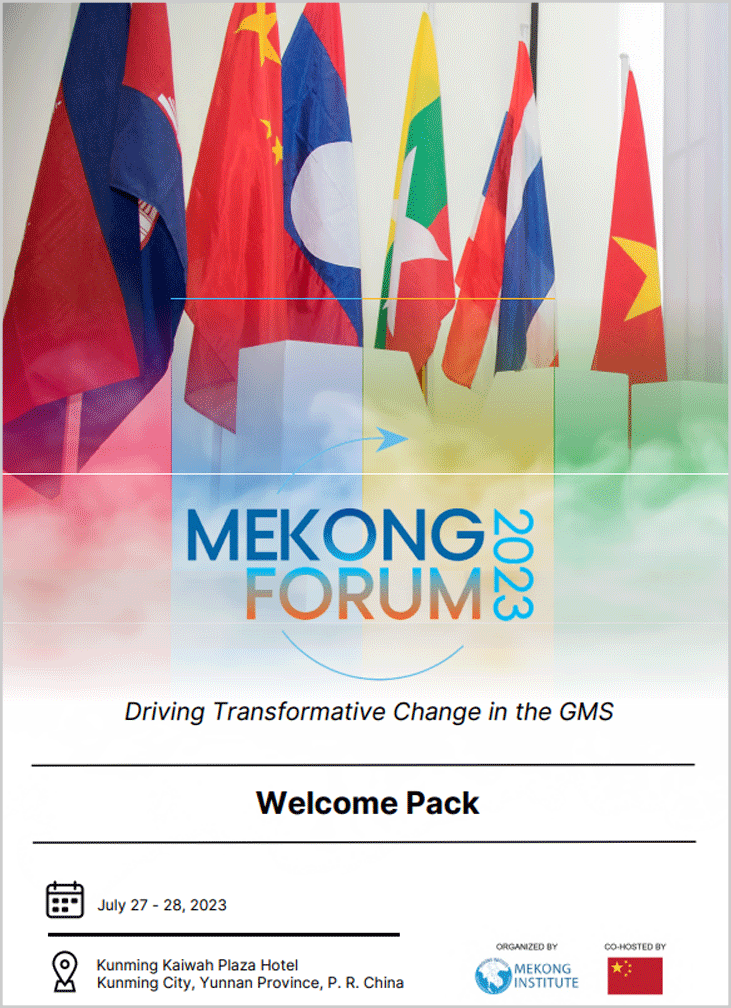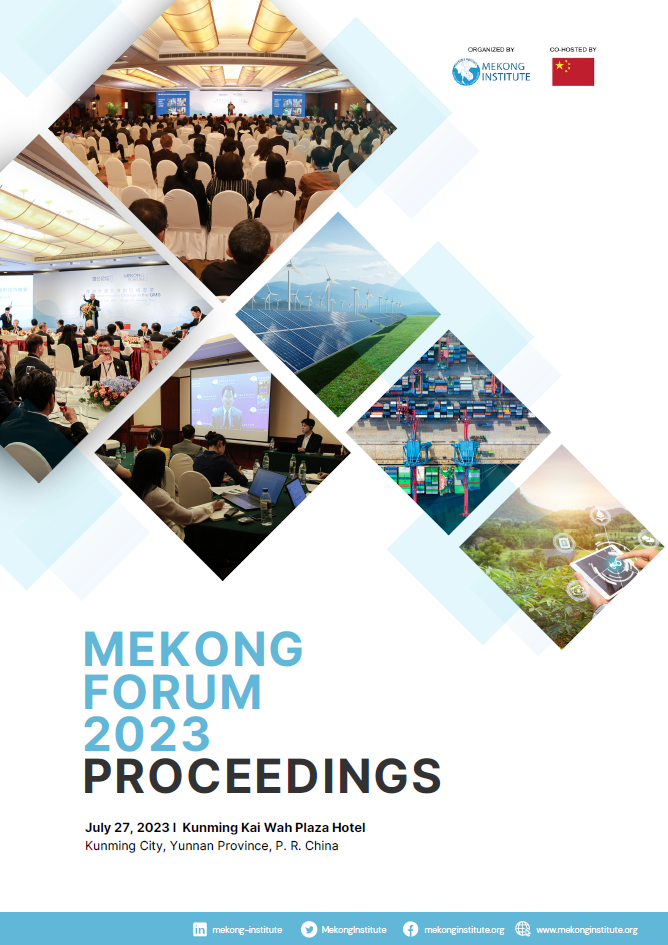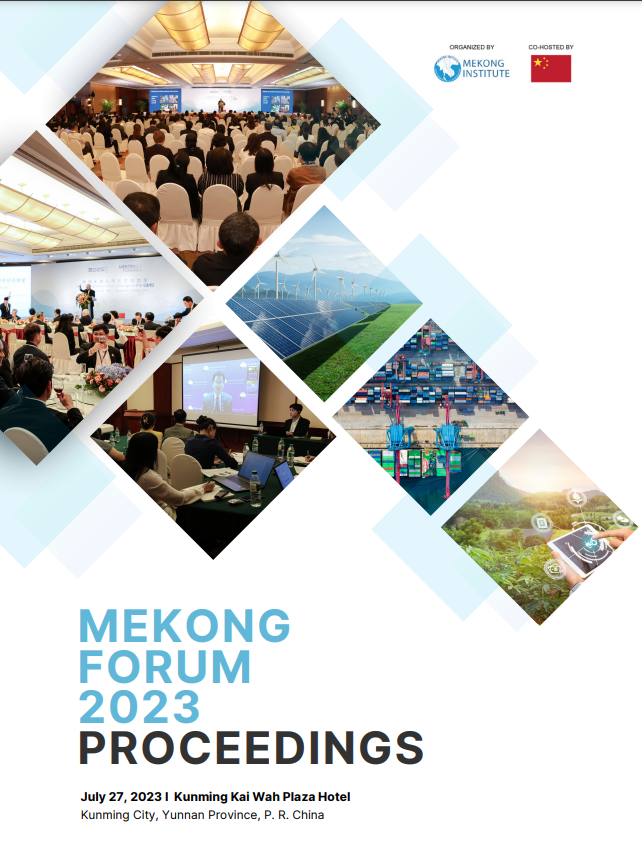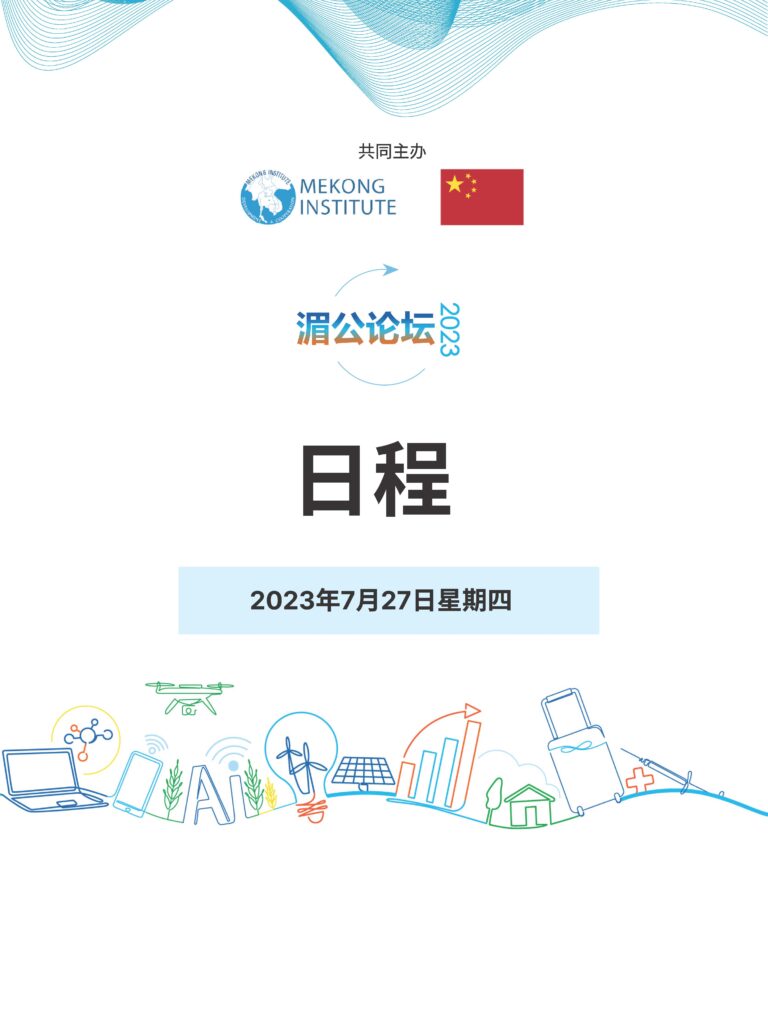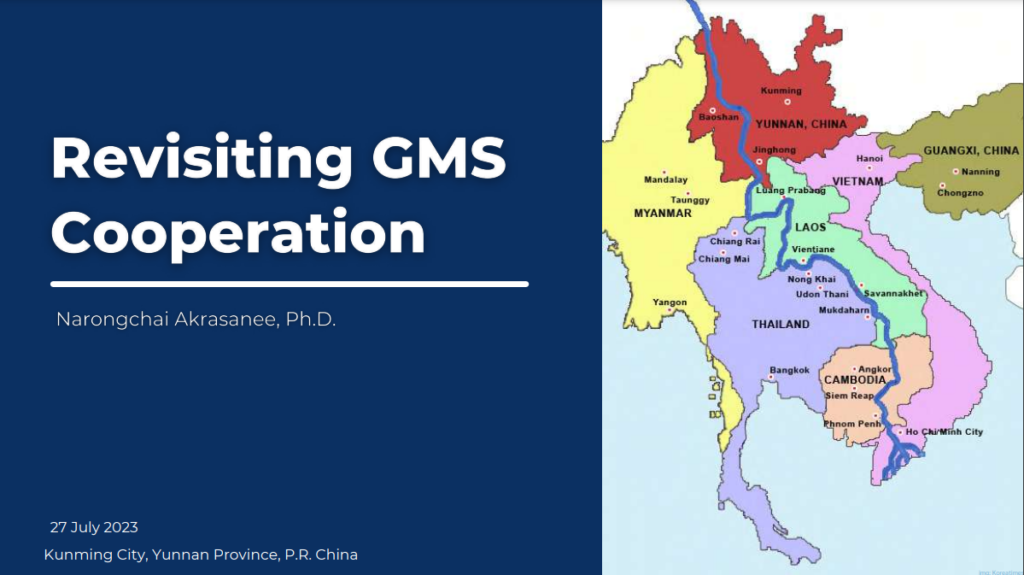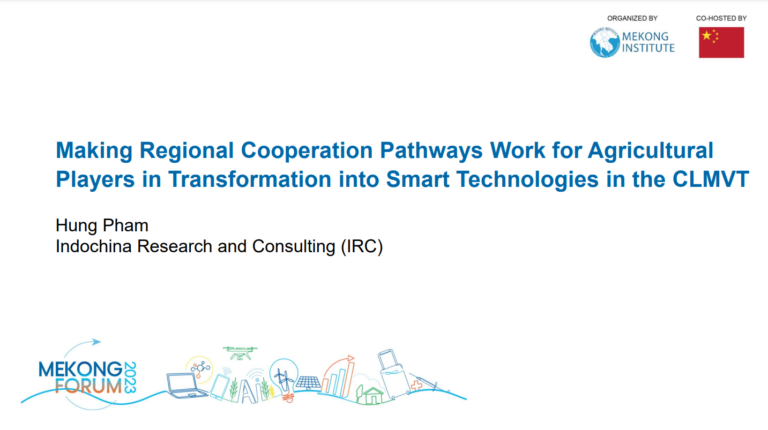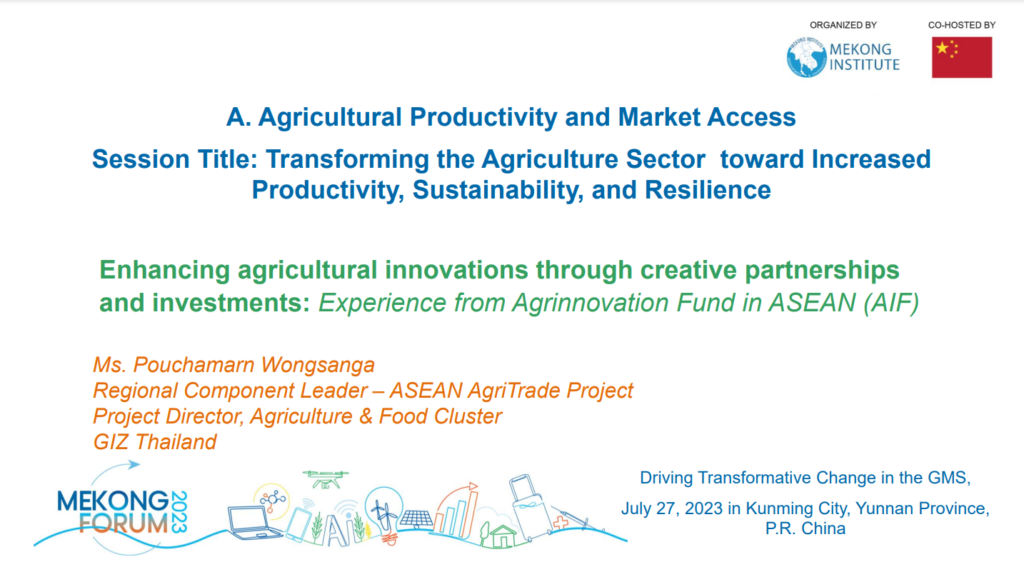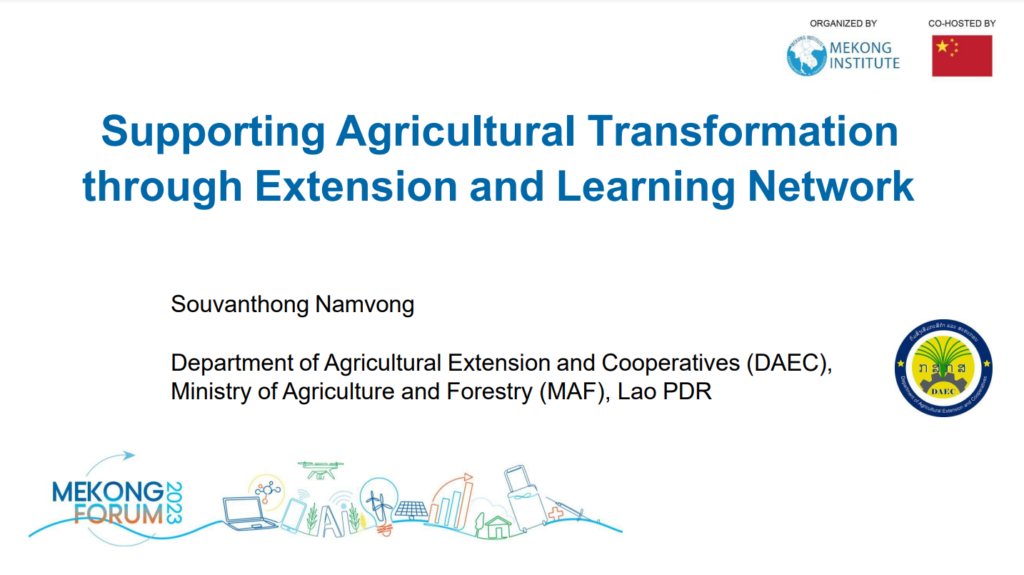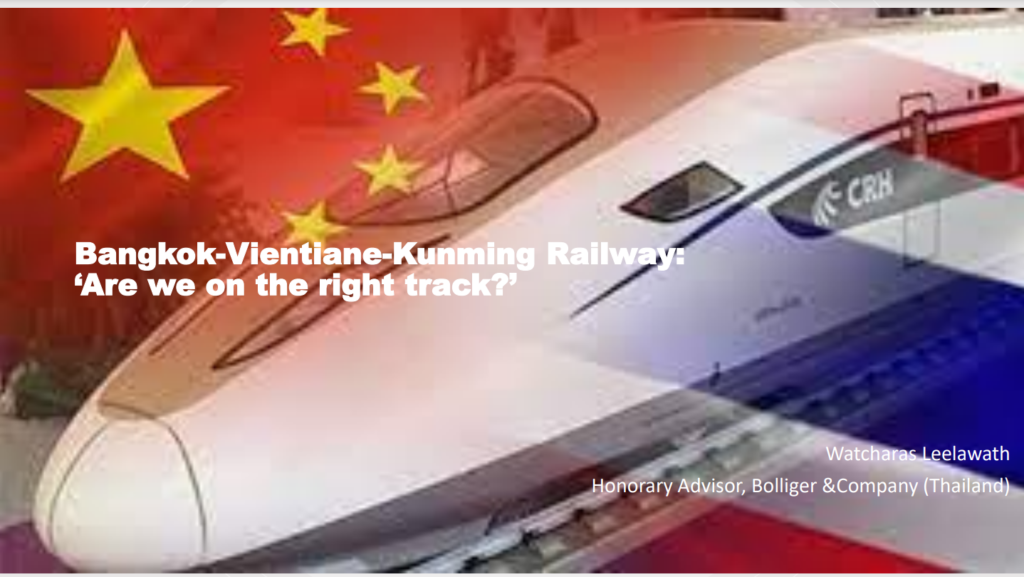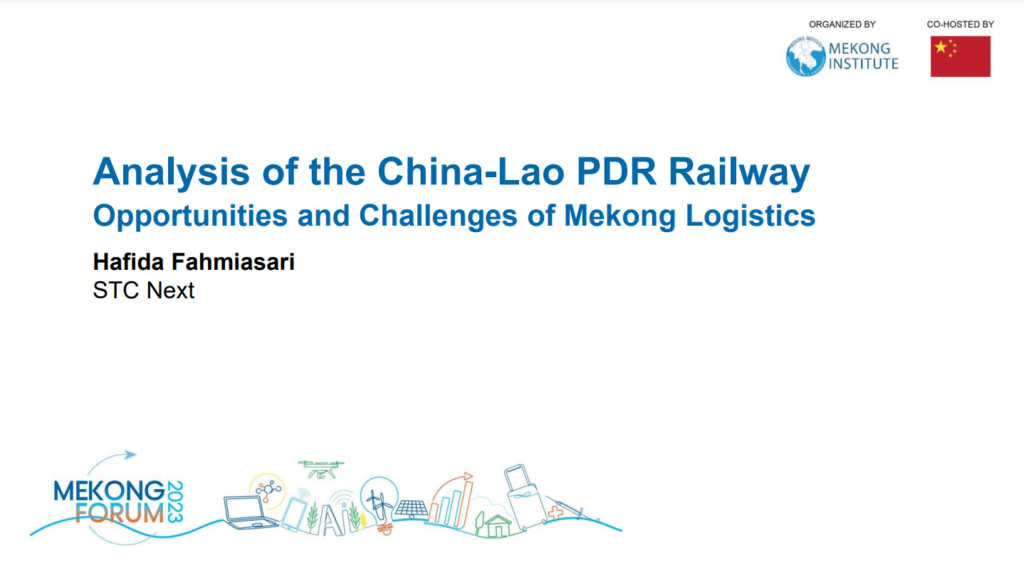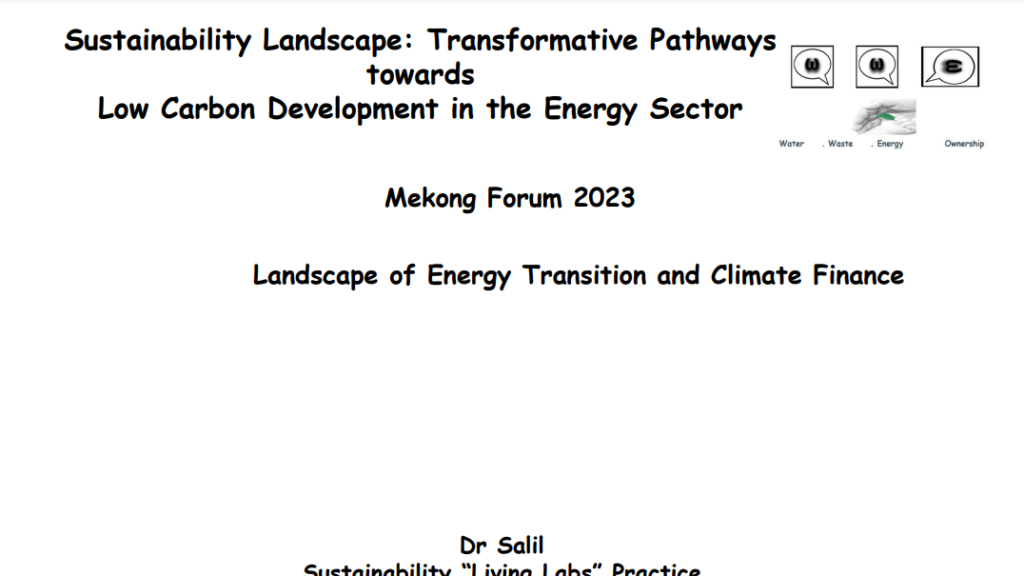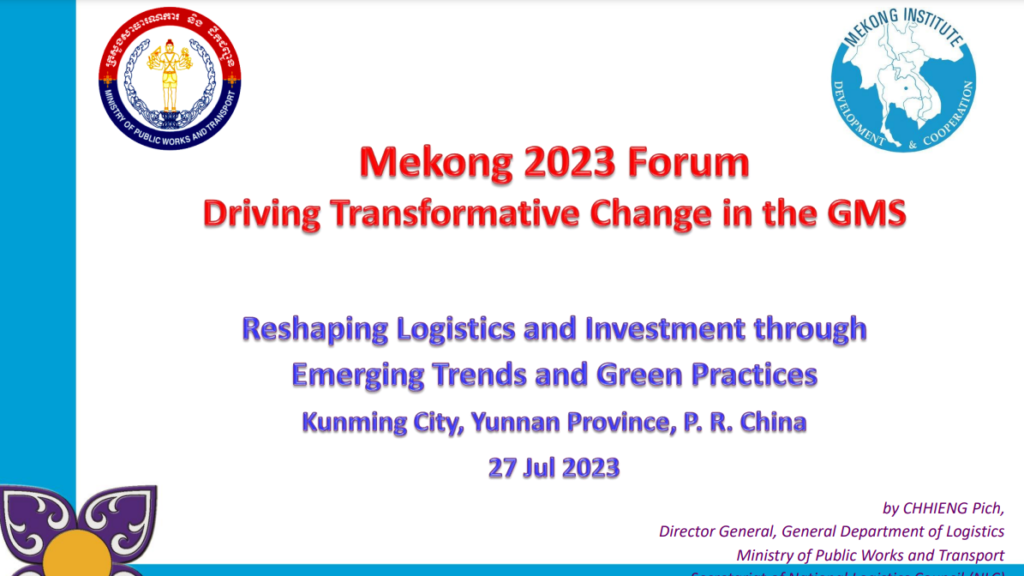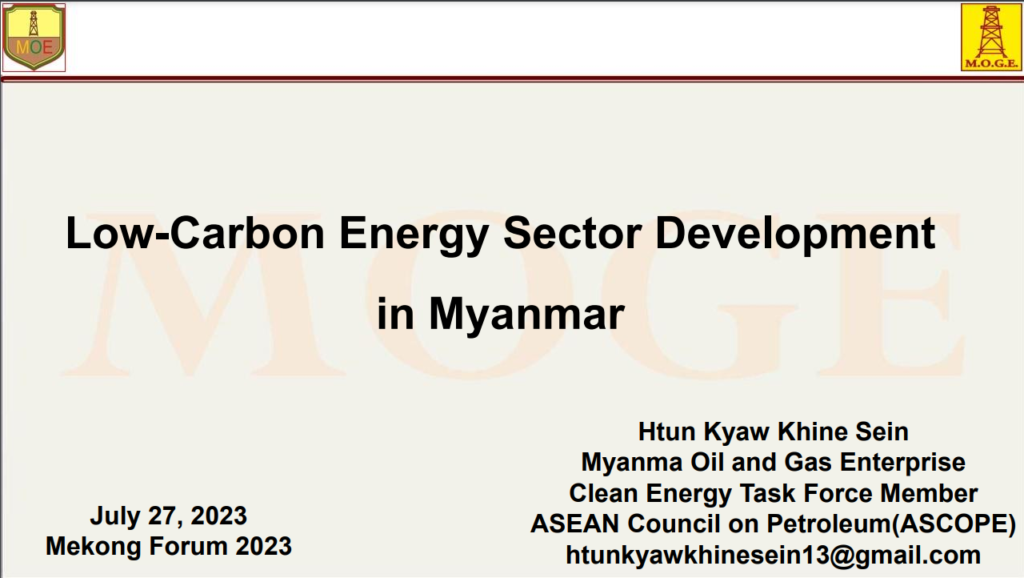For more information, contact:
Ms. Anusara Tanpitak
Communications and Knowledge Management Manager, Mekong Institute
Tel: +66 94 459 9848
Email: anusara(at)mekonginstitute.org
Mekong Forum 2023
Thursday July 27, 2023
| Time (UTC+8) | Activity | ||
|---|---|---|---|
| 08:30 – 09:00 | Registration at Gran Ballroom 1st Floor | ||
| 09:00 – 09:05 | Greetings and Welcome Ms. Hao Wen, Senior Program Coordinator, MI and Emcee | ||
| 09:05 – 09:15 | Introductory Remarks Mr. Suriyan Vichitlekarn, Executive Director, MI | ||
| Morning Plenary Session: Opening and Keynote Addresses | |||
| 09:15 – 09:35 | Welcome and Opening Address Mr. Chen Rongjie, Deputy Director General, Foreign Affairs Office of the People’s Government of Yunnan Province | ||
| 09:35 – 10:20 | Keynote Address I: “Revisiting GMS Cooperation” Dr. Narongchai Akrasanee, Chairman of MI Steering Committee | ||
| 10:20 – 10:50 | Keynote Address II: “Deepening the ASEAN Community Building: The Emerging Role and Contribution of the GMS through the ASEAN Lens” H. E. Mr. Satvinder Singh, Deputy Secretary-General of ASEAN for ASEAN Economic Community, the ASEAN Secretariat | ||
| 10:50 – 11:00 | Group Photo | ||
| 11:00 – 11:20 | Coffee/ Tea Break, and Networking | ||
| 11:20 – 12:00 | Overview of Thematic Breakout Session -Representatives from the Breakout Sessions -Prof. Dr. Ding Wenli, President of Kunming University | ||
| 12:00 – 12:05 | Announcement by Emcee | ||
| 12:15 – 13:30 | Lunch on the 3rd Floor | ||
| Afternoon Breakout Session | |||
| 13:30 – 15:00 | A: Agricultural Productivity and Market Access
| ||
B: Trade and Logistics
| |||
C: Clean Energy and Climate Resilience
| |||
| 15:00 – 15:20 | Coffee/ Tea break | ||
| 15:20 – 17:00 | A (continued) B (continued) C (continued) | ||
| 18:30 – 20:30 | Mekong Forum Reception Dinner and Networking | ||
Mekong Forum Study Tour (Optional)
Friday, July 28, 2023
| Time | Activity |
|---|---|
| 07:30 | Meet at the lobby of Kunming Kai Wah Plaza Hotel |
| 09:00 – 11:15 | Morning study tour to Kunming Railway Vocation and Technical College |
| 11:45 – 13:00 | Lunch |
| 13:30 – 15:30 | Afternoon study tour to Kunming International Flora Auction Trading Center |
| 16:00 – 17:00 | Return to the hotel |
The Greater Mekong Subregion (GMS), comprising Cambodia, China (Yunnan Province and Guangxi Zhuang Autonomous Region), Lao PDR, Myanmar, Thailand, and Viet Nam, has emerged as a recognized fast-growing economic block. It is driving and sustaining socioeconomic progress throughout the region while fostering connections with development partners in ASEAN, Asia, and the rest of the world.
However, the subregion has also been confronted with emerging challenges, including transboundary environmental issues, natural disasters, and social and political tensions. Consequently, poverty and hunger have surged, exposing unforeseen vulnerabilities across various sectors. Unfortunately, the poorest and most vulnerable populations have borne the brunt of these effects.
As the GMS continues to work towards achieving meaningful change, it is crucial to reaffirm its roles and recalibrate its mechanisms in pushing for a robust regional development agenda while supporting the priorities of member countries. With its focus on regional integration, promoting sustainable growth, and addressing shared challenges, the GMS has gained the support of critical actors and partners in international development.
In doing so, the Sustainable Development Goals (SDGs) continue to serve as the compass for development, mobilizing concerted global efforts even in dire circumstances. Likewise, to help global communities chart a higher and more sustainable growth trajectory, P.R. China launched the Global Development Initiative (GDI) in 2021 to foster stronger, greener, and healthier global development. The SDGs and the GDI remain all the more relevant in advancing recovery amidst an uncertain economic, political, and social future.
As an intergovernmental organization founded and owned by the GMS countries, Mekong Institute (MI) has been collaborating with governments, development partners, and stakeholders to build and enhance human resource capacities and facilitate policy implementation across regional cooperation frameworks. MI’s focus areas include food and agriculture, trade, logistics, energy, environment, innovation, and social inclusion.
This year, the Mekong Forum has as its theme “Driving Transformative Change in the GMS” and will shine a spotlight on the GMS, showcasing its transformative potential in driving sustainable economic growth and reclaiming its position as a growth center. With the support of China, the Mekong Forum 2023 will be held in person in Kunming City and is co-hosted by the People’s Government of Yunnan Province and MI.
- Reaffirm the GMS’s Purpose through the Lens of Stakeholders. The event aims to delve into how key stakeholders and development partners perceive the GMS to reaffirm its roles and comprehensively define the transformative change it needs moving forward.
- Foster Regional Cooperation. The forum aims to promote regional cooperation among the GMS countries by facilitating dialogue, knowledge sharing, and collaboration. It seeks to strengthen wider partnerships and encourage collective action to address the challenges and opportunities faced by the subregion.
- Share Best Practices and Tools. The forum will serve as a platform to showcase best practices, practical tools, and successful initiatives that have proven effective in fostering recovery and sustainable development in the GMS. It aims to disseminate knowledge, experiences, and lessons learned to inspire and guide policymakers, stakeholders, and practitioners in their efforts.
- Explore Opportunities for Accelerating Recovery. The forum will explore opportunities for recovering lost progress caused by the COVID-19 pandemic and global supply chain shocks. It will focus on identifying areas of growth and development, leveraging innovation, and harnessing the potential of sectors such as agriculture, trade, logistics, energy, environment, and social inclusion.
- Facilitate Multi-Stakeholder Engagement. The forum will provide a safe space for diverse stakeholders to engage in constructive dialogue and collaboration. It aims to foster inclusive decision-making processes and partnerships that lead to actionable insights and impactful solutions.
- Strengthen Capacities and Policy Implementation. The forum will seek to enhance the capacities of policymakers, institutions, and individuals in the GMS countries. It will focus on facilitating the implementation of policies, initiatives, and regional cooperation frameworks in various sectors, aiming to ensure effective and sustainable outcomes.
The forum is expected to be attended by approximately 300 participants made up of representatives from the GMS countries, government officials, development practitioners, particularly those working at the regional (GMS/ASEAN) level, and intergovernmental, non-government/civil society, and non-profit organizations, businesses, as well as research and academic institutes.
- Plenary Session. The forum will commence in plenary with the official welcome and opening remarks followed by several keynote addresses from distinguished leaders and experts in the field of international and regional (GMS/ASEAN) development cooperation.
- Break-out Sessions. Parallel breakout sessions are interactive and focused workshops designed to explore specific topics related to the theme of the conference. The sessions aim to engage participants to contribute, collaborate, and develop top actionable recommendations that can drive positive change within the GMS. These actionable recommendations will be one of the main concrete outcomes of the forum, which can be revisited during the succeeding forum next year. There will be a total of 3 sessions covering the topics that align with MI’s focus areas:
A. Agricultural Productivity and Market Access
Session Title
Transforming the Agriculture Sector toward Increased Productivity, Sustainability, and Resilience
About the session
The agriculture sector is integral to the GMS’s economy and provides food and livelihood to its citizens. With over 60% of the subregion’s population relying on it, the sector has seen significant growth in recent years. However, there are challenges that hold back the sector’s potential. These challenges include limited access to modern technologies, a lack of infrastructure, and numerous market constraints.
Modernizing agriculture offers a chance to boost productivity, sustainability, and resilience. By using modern technologies, investing in infrastructure, improving skills, and promoting sustainable practices, we can transform agriculture in the GMS, securing long-term economic growth and reducing poverty. In this session, experts, policymakers, researchers, and development partners from the GMS will come together to share knowledge and discuss innovative solutions and strategies for a sustainable and resilient food system, in support of the region’s efforts to accelerate its recovery post-pandemic.
B. Trade and Logistics
Unlocking Opportunities: Reshaping Logistics and Investment through Emerging Trends and Green Practices
About the session
Strong logistics networks and infrastructure connect different parts of the Lancang-Mekong, facilitating the flow of goods, services, and people. This connectivity promotes regional cooperation, trade, and investment, driving economic opportunities and development.
The expansion of logistics networks is creating an unprecedented opportunity for Mekong countries to
forge deeper ties within the Lancang Mekong region, thus promoting increased investment and fostering
export possibilities that will balance growth throughout the Lancang Mekong area. In this session, we will delve into the impact of logistics, particularly focusing on rail connectivity, a new and significant addition to the region’s logistics infrastructure. We will analyze the policy implications and the needs of the private sector in relation to these evolving logistics networks. The discussion will center around identifying fresh opportunities for Mekong nations, infrastructure improvements, and the sustainability implications of these new linkages. In the Mekong region, logistics plays a vital role in complex cross-border trade relations that are key to maintaining the region’s position in global value chains. The session will provide industry experts and policy makers with strategies to enhance logistics and income growth in the rapidly developing Mekong region.
C. Clean Energy and Climate Resilience
Session Title
Transformative Pathways towards Low Carbon Development in the Energy Sector
About the session
The SDGs and the Paris Agreement have a shared objective to create a sustainable world for everyone. One of the key targets is SDG 7, which focuses on providing clean and affordable energy. Access to clean and affordable energy sources helps reduce reliance on fossil fuels, mitigates climate change impact, and promotes environmental conservation by minimizing greenhouse gas emissions and air pollution. However, transitioning to clean energy is a complex process that requires significant upfront investments in infrastructure, technologies, and institutional capacities. Additionally, the ongoing conflict in Ukraine and the impacts of COVID-19 have led to increased energy prices. As the world approaches the midpoint of the 2030 agenda, there is a growing need to finance the energy transition, with a particular focus on developing economies.
The current climate finance landscape offers opportunities to address the inadequate level of investment in the energy sector. However, accessing climate finance can be complicated. In this session, we will discuss how the GDI can help Lancang-Mekong countries improve their ability to access climate finance for the energy sector. We will also emphasize the importance of regional partnerships in achieving climate commitments. Each country’s plans for energy transition pathways and the actions needed to reach its goals will be shared and discussed.
- Exhibit. The forum will feature an exhibition of innovative projects, initiatives, and practical tools and solutions from various organizations.
- Study Tour. An optional study tour will be organized to provide interested participants with invaluable insights into the latest innovations in the field, along with the opportunity to hear from industry experts firsthand.
The main conference language is English with simultaneous translation to Chinese. The event format is onsite with the plenary session to be livestreamed on MI’s Facebook page.
For more Mekong Forum 2023 photos, CLICK HERE
Plenary Session
A. Agricultural Productivity and Market Access
Session Title: Transforming the Agriculture Sector toward Increased Productivity, Sustainability, and Resilience
“Enhancing Agricultural Innovations through Creative Partnerships and Investments“
by Ms. Pouchamarn Wongsanga
“Supporting Agricultural Transformation through Extension and Learning Network”
by Mr. Souvanthong Namvong
B. Trade and Logistics
Session Title: Unlocking Opportunities: Reshaping Logistics and Investment through Emerging Trends and Green Practices
“Reshaping Logistics and Investments through Emerging Trends and Green Practices”
by H. E. Mr. Chhieng Pich
“Bangkok-Vientiane-Kunming Railway Are we on the right track”
by Dr. Watcharas Leelawath
“Analysis of the China-Lao PDR Railway Opportunities and Challenges of Mekong Logistics”
by Mrs. Hafida Fahmiasari
C. Clean Energy and Climate Resilience
Session Title: Transformative Pathways towards Low Carbon Development in the Energy Sector
“China’s Case & Experiences: Low Carbon Energy Development”
by Assoc. Prof. Tingting Guo
“The Transformative Pathway towards Low Carbon Development in the Energy Sector in Lao PDR”
by Ms. Viengsai Phavongkham
“Low-Carbon Energy Sector Development in Myanmar”
by Mr. Htun Kyaw Khine Sein
“Thailand’s Country Report: Successful Project for Further Dissemination”
by Mr. Wisaruth Maethasith
Mekong Forum 2023
Thursday July 27, 2023
| Time (UTC+8) | Activity | ||
|---|---|---|---|
| 08:30 – 09:00 | Registration at Gran Ballroom 1st Floor | ||
| 09:00 – 09:05 | Greetings and Welcome Ms. Hao Wen, Senior Program Coordinator, MI and Emcee | ||
| 09:05 – 09:15 | Introductory Remarks Mr. Suriyan Vichitlekarn, Executive Director, MI | ||
| Morning Plenary Session: Opening and Keynote Addresses | |||
| 09:15 – 09:35 | Welcome and Opening Address Mr. Chen Rongjie, Deputy Director General, Foreign Affairs Office of the People’s Government of Yunnan Province | ||
| 09:35 – 10:20 | Keynote Address I: “Revisiting GMS Cooperation” Dr. Narongchai Akrasanee, Chairman of MI Steering Committee | ||
| 10:20 – 10:50 | Keynote Address II: “Deepening the ASEAN Community Building: The Emerging Role and Contribution of the GMS through the ASEAN Lens” H. E. Mr. Satvinder Singh, Deputy Secretary-General of ASEAN for ASEAN Economic Community, the ASEAN Secretariat | ||
| 10:50 – 11:00 | Group Photo | ||
| 11:00 – 11:20 | Coffee/ Tea Break, and Networking | ||
| 11:20 – 12:00 | Overview of Thematic Breakout Session -Representatives from the Breakout Sessions -Prof. Dr. Ding Wenli, President of Kunming University | ||
| 12:00 – 12:05 | Announcement by Emcee | ||
| 12:15 – 13:30 | Lunch on the 3rd Floor | ||
| Afternoon Breakout Session | |||
| 13:30 – 15:00 | A: Agricultural Productivity and Market Access
| ||
B: Trade and Logistics
| |||
C: Clean Energy and Climate Resilience
| |||
| 15:00 – 15:20 | Coffee/ Tea break | ||
| 15:20 – 17:00 | A (continued) B (continued) C (continued) | ||
| 18:30 – 20:30 | Mekong Forum Reception Dinner and Networking | ||
Mekong Forum Study Tour (Optional)
Friday, July 28, 2023
| Time | Activity |
|---|---|
| 07:30 | Meet at the lobby of Kunming Kai Wah Plaza Hotel |
| 09:00 – 11:15 | Morning study tour to Kunming Railway Vocation and Technical College |
| 11:45 – 13:00 | Lunch |
| 13:30 – 15:30 | Afternoon study tour to Kunming International Flora Auction Trading Center |
| 16:00 – 17:00 | Return to the hotel |


